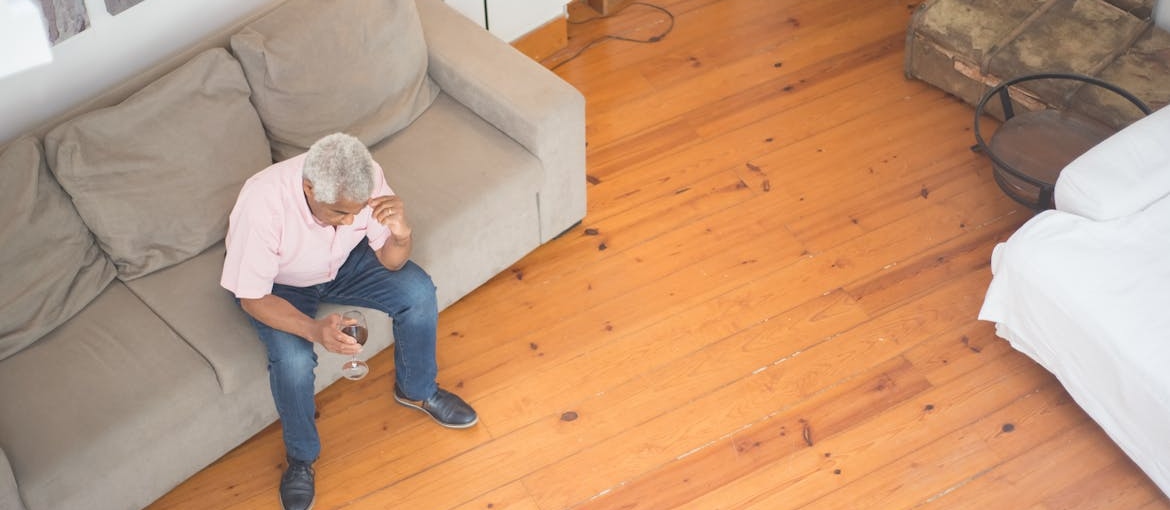Losing someone you love can change everything. The pain feels heavy, and many people look for ways to numb it. For some, that means turning to alcohol or drugs. This can create a dangerous cycle where grief and substance abuse feed off each other. It may feel like you are coping, but over time the damage grows. You might notice isolation, health issues, or worsening sadness. The truth is, you don’t have to face this alone. There are healthier ways to process grief and begin to heal. A West Virginia treatment center can give you the tools and support you need. Reaching out for help is a step toward relief. With the right care, you can break free from addiction and find a path forward.
How Grief Contributes to Substance Abuse
Loss creates an emptiness that can feel impossible to carry. Many people turn to alcohol or drugs to dull that pain. The problem is that substances don’t heal the loss—they only mask it. Over time, grief and substance abuse become tied together, trapping people in a cycle of avoidance and dependency. Instead of moving through emotions, the person avoids them. This makes grief heavier and recovery harder.

The question often arises: what is the connection between grief and substance abuse? The answer is simple but painful—grief pushes people toward unhealthy coping, while substance use delays healing. Once both problems grow, the cycle becomes harder to break without professional help. Facing emotions without relying on substances is the only way to start real recovery.
Common Substances Used to Cope With Grief
Grief often leaves people searching for ways to cope with overwhelming emotions. While some turn to healthy outlets, others fall into dangerous patterns. Substances can provide temporary relief but often worsen long-term pain. Alcohol, prescriptions, and illicit drugs are common choices, each carrying unique risks. It’s important to understand these patterns to see how they connect to deeper struggles. Here are three areas where grief and substance abuse often become tightly linked.
Alcohol And Its Connection To Grieving Patterns
Alcohol is one of the most common ways people cope with grief and substance abuse. Drinking may numb painful emotions, but the relief rarely lasts. Over time, substance abuse and grief become a cycle that deepens loneliness and regret. Some begin with casual drinking at gatherings, only to find themselves dependent later. Alcohol often worsens depression and anxiety, leaving people less able to heal from loss.
Families struggling with this often seek professional support. A trusted alcohol rehab center Fairmont WV locals swear by provides treatment tailored to emotional struggles tied to grief. Specialized programs focus on both the physical dependency and the emotional wounds that drive drinking. Recovery is not just about stopping alcohol use—it’s about creating space to grieve without substances. With the right help, people can rebuild stability and emotional strength.

Prescription Medications And The Risk Of Misuse
Prescription drugs can seem safer, but they play a major role in unresolved grief and substance abuse. Sleep aids, painkillers, and anti-anxiety medications may bring short-term relief. Still, misuse often develops when someone feels unable to cope with loss. Over time, substance abuse and grief build into a dangerous dependency that clouds judgment and emotional healing. Families may notice loved ones taking higher doses or combining prescriptions unsafely.
Addressing these issues requires specialized care. Programs that treat both mental health and substance use are essential. A trusted option is dual diagnosis treatment West Virginia has, where professionals treat grief and substance abuse together. This integrated care helps patients manage emotions while addressing chemical dependency. Without this level of support, many continue masking pain instead of healing. Effective treatment brings clarity, strength, and healthier coping.
Illicit Drugs As A Means Of Escaping Emotional Distress
Grief can drive people toward dangerous coping methods when emotions feel too heavy to face. Illicit drugs may seem like an escape, but they often create more pain. Many use these substances to numb or distract, yet the relief is temporary. Here are some of the most common choices people turn to during loss:
- Cocaine or meth for temporary energy and escape
- Heroin for numbing deep pain and sadness
- Marijuana to avoid overwhelming feelings
- Ecstasy or hallucinogens for distraction from grief
- Street opioids as a substitute for prescriptions
Treatment Options for Those Facing Grief and Substance Abuse
Grief and substance abuse require more than willpower to overcome. Professional care helps people face emotions while reducing dependency safely. Each treatment step addresses both body and mind. From detox to therapy, recovery is about building new coping tools that replace harmful substances. Lasting change happens when programs treat grief, substance abuse, and mental health together. Here are three treatment paths that support healing for those struggling with unresolved grief and substance abuse.

Medical Detox For Safe Withdrawal
Detox is often the first step for people dealing with grief and substance abuse. It removes harmful substances from the body under medical supervision. This process helps reduce withdrawal risks that could be dangerous without help. Detox is especially important for those using alcohol, opioids, or sedatives. Each carries life-threatening withdrawal symptoms if stopped suddenly. For grieving individuals, emotions may intensify during detox. That’s why compassionate support is crucial.
Many turn to medication assisted treatment West Virginia rehabs offer, where safe medications ease symptoms while allowing emotional recovery to begin. This approach keeps patients stable, reduces cravings, and gives them a clearer mind for therapy. Detox is not the end goal—it’s the foundation for healing. Once complete, individuals are stronger and ready to address both grief and substance abuse with focused treatment.
Rehab Programs That Address Trauma And Loss
Rehab programs give structure and tools to manage grief and substance abuse. These programs teach healthier coping strategies while reducing dependency on substances. For someone struggling with unresolved grief and substance abuse, trauma-focused care is essential. Treatment may include counseling, group sessions, and therapies that target emotional wounds. Programs designed for loss recognize how substance abuse and grief often reinforce each other.
Many families worry about cost, but options like PEIA insurance rehab coverage can make quality care more accessible. Specialized facilities help patients face the pain of loss while breaking free from dependency. By treating both trauma and substance use, rehab programs restore balance and strength. Healing takes time, but guided support helps people regain stability. Rehab programs give hope to families facing the dual struggle of grief and addiction.
Ongoing Support Through Aftercare And Relapse Prevention
Recovery from grief and substance abuse doesn’t end with rehab. Aftercare helps prevent relapse by offering continued support and accountability. This stage often includes counseling, support groups, and check-ins with professionals. For many, one-on-one sessions like individual therapy for addiction are crucial. Therapy helps people face lingering grief without returning to substances. It also allows them to track progress and build coping strategies for stressful moments.
Aftercare often involves creating a relapse prevention plan, setting goals, and building a stronger support system. Many programs include family involvement to strengthen relationships strained by substance abuse and grief. Recovery is ongoing, but with structured aftercare, progress can last. Staying engaged with therapy and community resources provides hope. Long-term healing is possible when grief and substance abuse are managed together with consistent care.

Dual Struggles: Mental Health, Grief, and Addiction
When grief and addiction mix, mental health almost always suffers. Depression, anxiety, and other conditions often get worse when substances enter the picture. Each struggle feeds into the next, making recovery harder. Here are some ways mental health is tied to grief and substance abuse:
- Depression: Grief can deepen sadness and increase reliance on substances.
- Anxiety: Loss often triggers fear that fuels substance use.
- PTSD: Traumatic loss may lead to flashbacks and drug misuse.
- Insomnia: Sleep struggles make people reach for alcohol or pills.
- Isolation: Pulling away from others increases addiction risks.
- Hopelessness: Feeling stuck encourages more harmful coping.
- Anger: Strong emotions may push people toward substances.
Supporting a Loved One Struggling With Grief and Addiction
Watching someone battle grief and substance abuse is difficult. Families often feel helpless or unsure how to step in. Recognizing warning signs and knowing how to talk about treatment are critical. Support must balance empathy with action. With care and patience, families can encourage recovery while respecting emotional pain. Unresolved grief and substance abuse can worsen quickly, but intervention helps. Here are three ways to support someone facing the challenges of substance abuse and grief.
Recognizing The Signs Of Substance Misuse
It’s not always easy to see when grief and substance abuse overlap. Small changes in habits or moods can quickly grow into bigger issues. Spotting the signs early gives you a chance to step in with care. Here are some red flags you should watch for:
- Secretive or withdrawn behavior after loss
- Sudden changes in sleep or eating habits
- Increased reliance on alcohol or drugs for relief
- Decline in work, school, or responsibilities
- Neglecting personal hygiene or health
- Mood swings, anger, or deep sadness
- Financial or legal troubles connected to substance use
How To Talk About Treatment Without Pushing
It’s hard to bring up treatment with someone facing grief and substance abuse. You want to help but don’t want to push too hard. The key is honesty and empathy. Choose a calm time when your loved one feels safe. Share your concerns without judgment. Instead of blaming, focus on how much you care. Using clear, kind words opens the door.
A helpful approach is to learn how to talk to your loved one about going to rehab. This makes the conversation more supportive and less overwhelming. Offering resources and listening without pressure helps them feel less alone. Even if they don’t agree right away, you’ve started the path to change. Gentle words can plant the seed for recovery while keeping your bond strong.

Encouraging Professional Help And Family Therapy
Professional help is vital when substance abuse and grief mix together. Healing requires support from outside the family. Therapy creates a safe space to share emotions without fear of judgment. Group counseling or family sessions build understanding and reduce isolation. One effective approach is family therapy for addiction, which strengthens communication and encourages teamwork in recovery.
This type of therapy helps loved ones see how unresolved grief and substance abuse impact everyone. It also teaches strategies for coping together instead of falling into conflict. Families that commit to therapy often feel less overwhelmed and more connected. Professional guidance gives structure to a very emotional process. Encouraging your loved one to seek therapy while joining in yourself can create lasting progress. Healing becomes a shared journey when families participate together.
Healthy Alternatives to Substance Use During Grief
Turning to alcohol or drugs for comfort may feel easier in the short term, but it creates lasting damage. Healthy alternatives give you safer ways to cope and move through grief. These methods may not erase pain, but they help you heal without deepening the struggle. Here are some effective coping strategies:
- Therapy: Professional help gives you tools to process pain safely.
- Support groups: Shared experiences remind you that you’re not alone.
- Exercise: Movement helps release tension and reduce stress.
- Journaling: Writing thoughts makes emotions easier to manage.
- Mindfulness: Breathing and grounding keep you in the present.
- Creative outlets: Art or music channel pain into healing.
- Healthy routines: Sleep and nutrition strengthen emotional balance.

Conclusion: Healing Beyond Grief and Substance Abuse
Grief can feel impossible to manage, and it often pushes people toward unhealthy coping methods. Turning to drugs or alcohol may feel like a way to escape, but it only deepens the pain. If you see yourself stuck in this pattern, know that change is possible. The first step is admitting that grief and substance abuse are connected in your life. The next step is reaching for help that addresses both. Treatment gives you a safe space to work through loss without relying on substances. Recovery takes effort, but you don’t have to face it alone. With the right care and support, you can learn healthier ways to cope. Healing doesn’t erase your grief, but it helps you carry it without destroying yourself.



